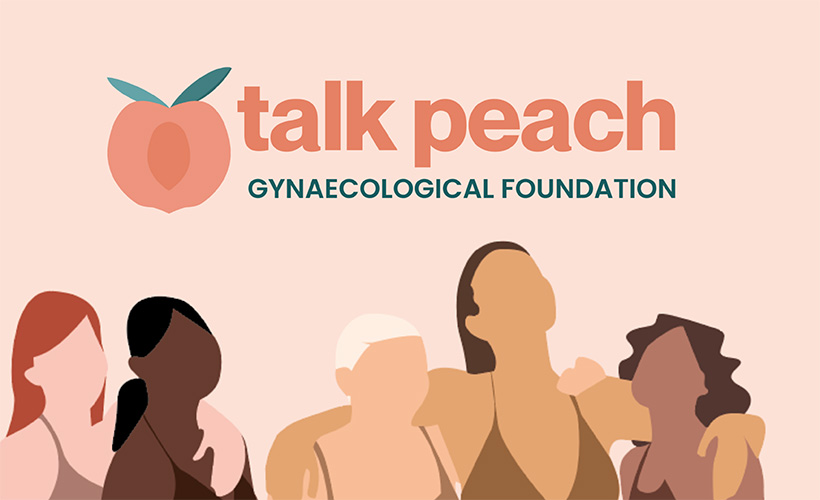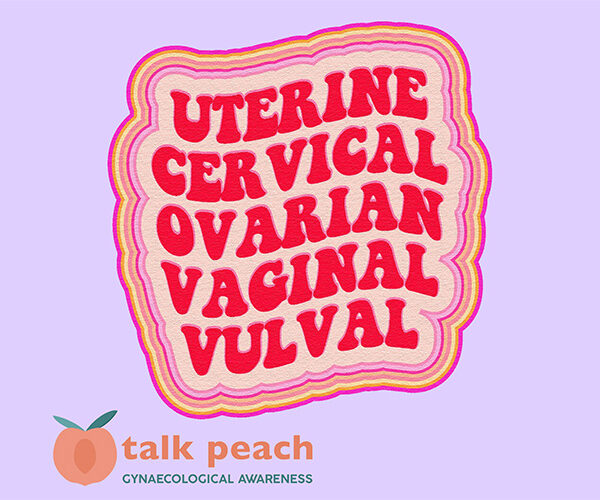2. What are the warning signs and symptoms that need to be checked out?
We often think of gynaecological health as just one big thing, but in fact these five cancers are separate and they all have their own individual signs and symptoms.
Some of the most common signs to look out for are:
- abnormal bleeding: bleeding after sex/bleeding between periods/post menopausal bleeding
- abdominal pain or discomfort
- changes in vaginal discharge
- back pain
- pain during sex
- changes in bowel habits: diarrhoea/constipation
- eating habits: feeling full quickly
- urgency/frequency to urinate
- changes to the appearance of skin on the vagina/vulva
- fatigue
- persistent bloating
- indigestion.
-
It is important to know what is normal for your own body. Don’t compare yourself to other people and don’t feel silly going to the doctor if things don’t feel right – looking after yourself is an act of self-care. If you notice any changes to your body that are new for you and have persisted for two weeks it is always a good idea to visit a health professional.
3. What treatments are available?
Treatment depends on the type, stage and spread and may include a combination of surgery, radiotherapy and chemotherapy.
4. Are there tests available to detect these cancers?
Pathways to detection includes pelvic examinations, blood tests and ultrasounds.
5. Are gynaecological cancers genetic/heritable?
Not always. People can have genetic mutations that make them more susceptible to certain types of cancer. The BRCA gene is one that has been identified in breast and ovarian cancer.
6. What are the risk factors for developing one of these cancers?
The risk factors are different for all the cancers but can include age, family history, genetic mutations, ethnicity, smoking and reproductive history.
7. Are there any ways to prevent these cancers or minimise the risk?
Having a healthy awareness of your body, knowing your family history, and getting regular cervical smears can decrease your risk of developing certain cancers. Other lifestyle measures such as quitting smoking, a healthy diet and exercise all contribute to overall health and wellness.
8. What are the outcomes for patients diagnosed with a gynaecological cancer?
It depends on which one you have been diagnosed with. The earlier the diagnosis, the better the outcome.
The five-year survival rate for ovarian cancer in New Zealand is 37%. It has a 70% chance of recurrence post treatment and the survival statistics for ovarian cancer have remained virtually unchanged for 30 years. This is literally a crisis point in terms of advancement in survival rates for cancers.
Breast cancer used to have a similar outlook but now thanks to incredible advocacy, large-scale fundraising and an immense amount of research the breast cancer 10-year survival rate is 75% if a lump is the first sign or 92% if detected via a regular mammogram.
With over 400 New Zealanders dying from one of these five gynaecological cancers every year, Talk Peach hopes that increased awareness of gynaecological cancers will allow discussions of these cancers to be normalised. Information and education, better funding for research, clinical trials, treatment and medication, and better pathways for diagnostic testing ultimately change outcomes for people, in particular avoiding late-stage diagnosis.
This blog provides general information and discussion about medicine, health and related subjects. The information contained in the blog and in any linked materials, are not intended nor implied to be a substitute for professional medical advice.



















Community